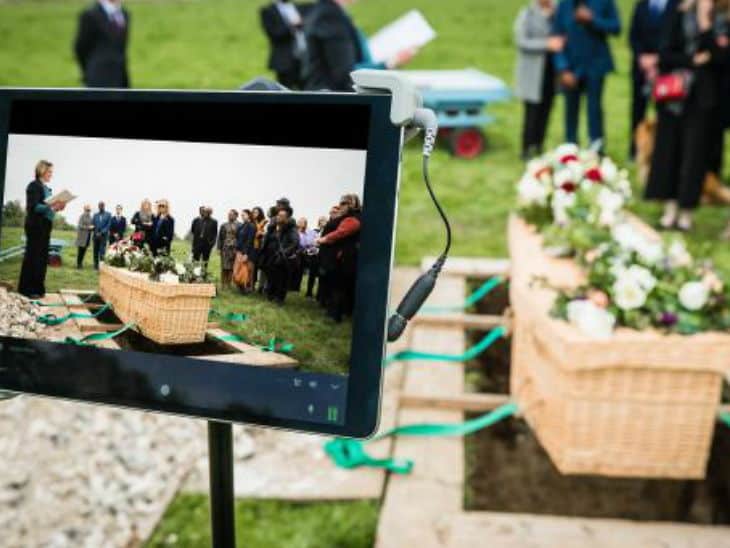Washington: The coronavirus has confined populations all over the world to within the four walls of their homes, prompting mass migration of migrants workers from metro cities to small towns. Not to mention it has killed many people.
Whether death comes by corona or some other calamity — natural or manmade — the disease even causes grief before one enters the grave and long after it as well. Due to social distancing, the virus has robbed a person of their final rites. That too, especially for whom such ceremonies hold sacred importance.
The simple act of comforting, via the embrace, the comforting caress or the mere ability to join hands to assuage someone’s guilt, seems like a luxury nowadays with this pandemic. Funeral homes and family members of deceased individuals cannot make the final goodbyes. In some cases, bodies are being stored in the morgue so that family can bid them adieu properly. Although such a process may or may not do right by the dead, it surely does prolong the grieving process.
A New York Times story speaks about a Houston native Nancy Moncrief who had to postpone her brother’s funeral. Another person learned that her mother’s dead body was found in a lake of the state of Georgia. Besides the fact that a full-fledged investigation with forensics cannot be carried out, talk of a funeral is even more premature.

Rather than opting for the traditional burial in a coffin, many are making do with cremations. However, those keeping bodies in cold storages have indirectly put funeral homes and mortuaries in quandary. For instance, both do not have to store bodies for weeks and months. Also, like hospitals, they too are in short supply of masks and gloves that protect funeral workers. Some are just even having funerals but with minimal attendees.
In Europe where countries like Italy have outright banned public funerals, cities like Madrid, Spain like ice-skating rinks have been turned into temporary morgues. In Germany, which has been comparatively less hit, churches and undertakers have been following government regulations to not let more than 10 people attend a burial. In pre-pandemic times, one would attribute such a turnout to people being busy or not looking favourably upon the recently deceased person.
Jo Brewer, a funeral home owner from Devon, England who has conducted more than 1,000 funerals told BBC that “Conducting a funeral under restrictions is so much harder because you know the person that’s passed away really deserved a packed house and a wake where everyone shares happy memories.”
Clearly, saying good bye to loved ones for the last time has never been more difficult.

